There was a shortcut through an empty field by a neighbor’s house that was worn down with years of use. The Girl used it heading to her first day at Polish school nine years ago.
One of the first changes we’d noticed was that the shortcut is no more.
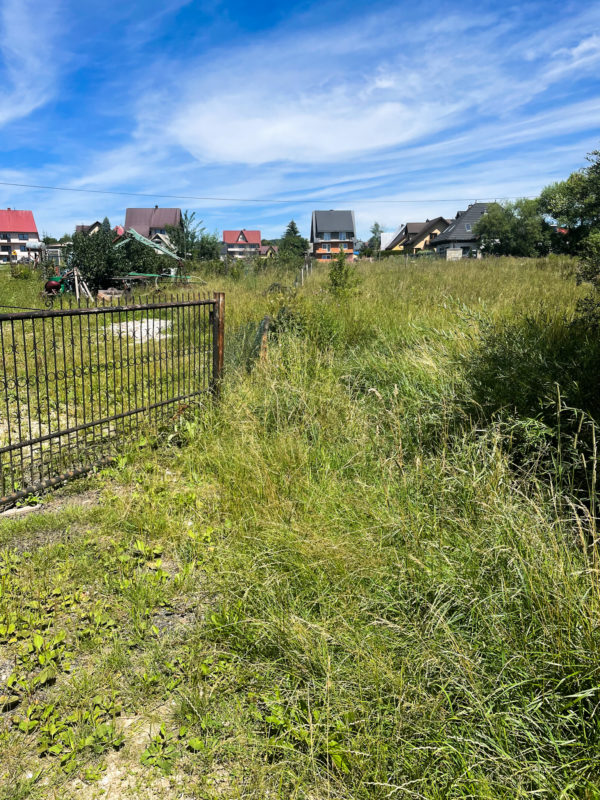
More and more people drive more and more. Fewer people walk. Just like fewer and fewer people have anything resembling a farm.
“The Polish village is dying,” Babcia insists. “It survived the Partitions, the wars, Communism — but capitalism killed it.” When she says this, I want to argue that it’s more complicated than that, but I never do. What’s the point?
This afternoon, we decided to go for a bike ride to Lipnica Wielka, my home for seven years. Along the way, we passed a monument to slain Soviet soldiers who died fighting the Germans in 1945 as the Soviets pushed the Germans back. The front shifted, as it always does, but from Christmas 1944 to Easter 1945, it ran right through this area.
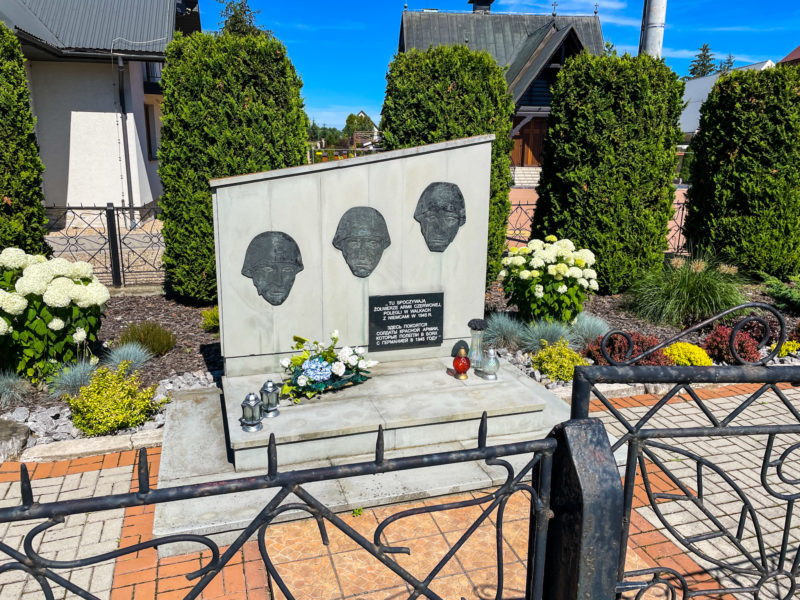
There’s a monument to the men who died here, presumably at a mass grave based on the inscription.
While the Russians were certainly not heroes in the strictest sense (they were raping in mass numbers as they went along, particularly when they crossed into Germany), they were freeing the Poles from a greater immediate threat. Or were they? Didn’t they just replace one type of totalitarian rule with another? Was it really that much of a change? The Germans had Auschwitz; the Soviets had the Gulag Archipelago.
Things changed, but they didn’t.
When we reached Centrum, I decided we should go look at dom nauczyciela one more time. I knew how it would look — just as it had always looked.
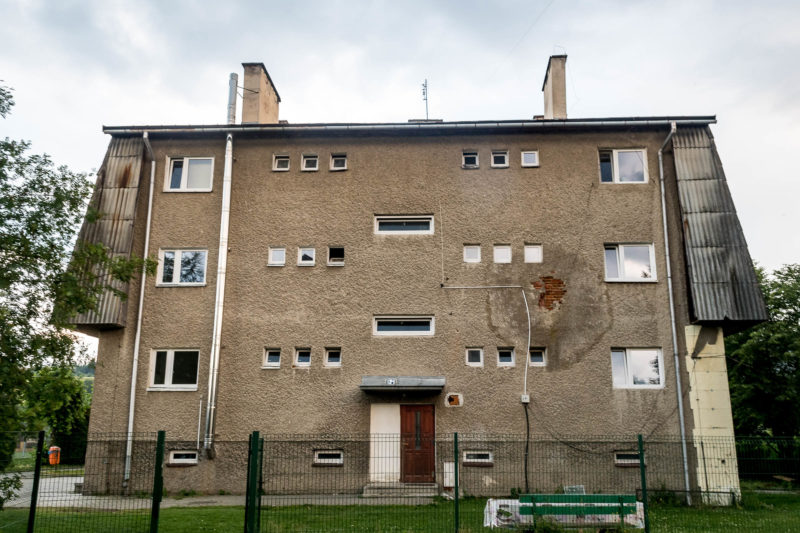
It was scheduled for demolition, but I knew that would take weeks. Months. Maybe even a year. When it comes to construction, nothing moves fast in Poland.
As we approached, though, I saw that the road to dom nauczyciela had been partially blocked off.
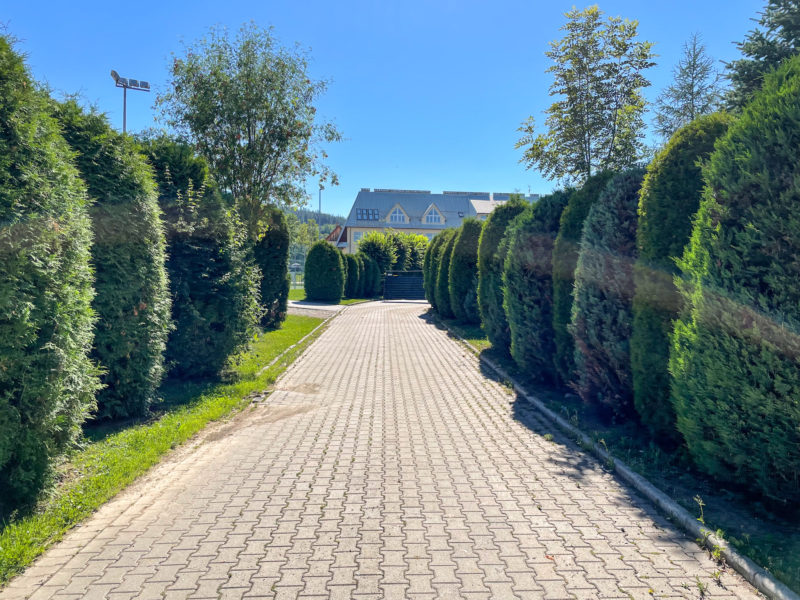
And soon, I heard the machinery. And I knew. I knew that although nothing in construction moves fast in Poland, destruction can come with unexpected rapidity.
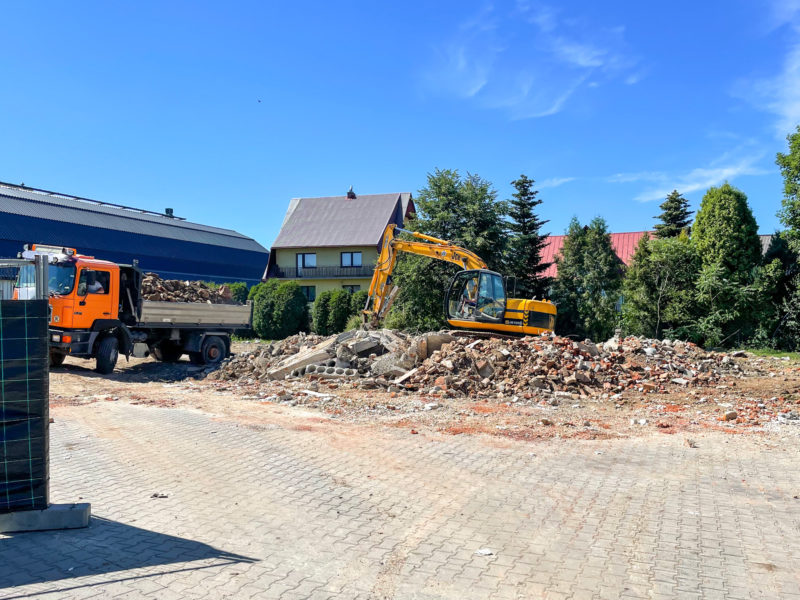
There it was, my home for three years, three of the most amazing years of my youth, being carted away, load by load, in a dump truck.
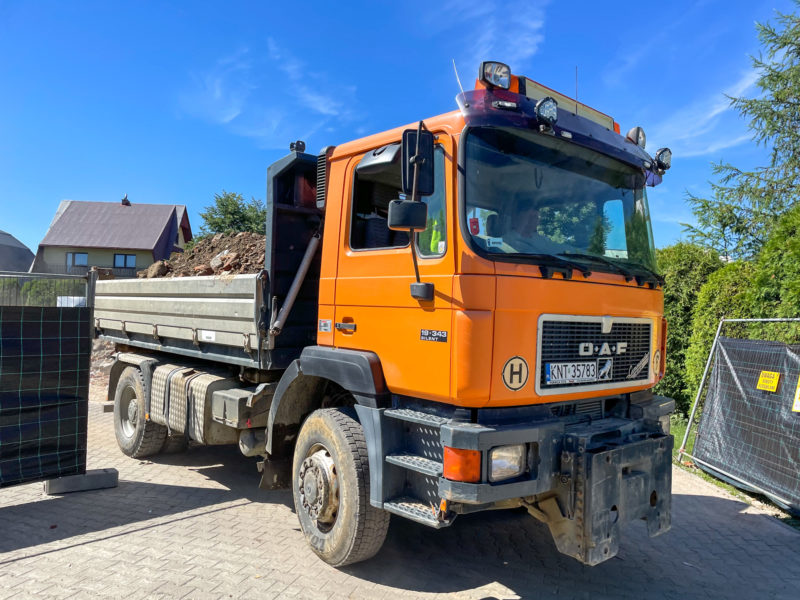
It’s silly to feel sentimental about a building, to exaggerate the importance of a relatively routine action. “Things move on,” K suggested in a text.
The building was ugly — there was no denying that. It’s not like it had all the charm of a solution to a problem in which only functionality played any role at all. The strange roof that cascaded and became part of the side of the building suggests at least a half-hearted attempt to make the building original, in some sense beautiful. But like so many things built when communism and socialist realism ruled behind the Iron Curtain, the attempt at some kind of architectural uniqueness only highlighted everything wrong with the ideas ruling the country. The building was, in a word, ugly.
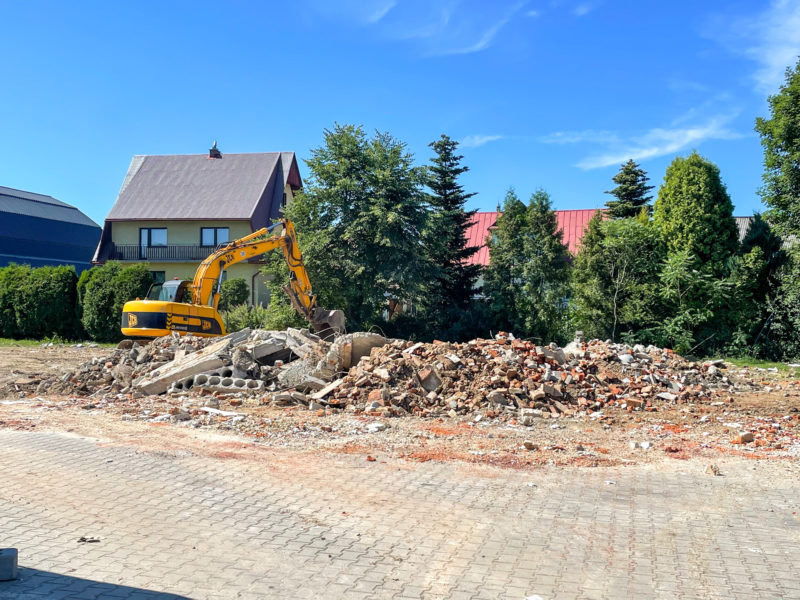
In addition, it was likely horridly inefficient at keeping the heat in. When the mayor’s assistant (who later went on to become the mayor himself) moved into the apartment beside mine on the first floor, he added insulation to the outside of the building to help with the frigid winter nights. The water for the heaters circulated in a clockwise motion from the lower left corner where the boiler was located. I got the hot water first, and as a result, my apartment was almost always oppressively hot when it was in the minus twenties outside. But by the time the water got to the mayor’s assistant’s apartment, it had cooled considerably, hence the insulation.
So K was right: it was time for the poorly insulated, ugly building to come down. But that reality doesn’t change the stab I felt as I watched workers clean up what was left of the building.
Oddly enough, just a few meters from my former home as one heads to the back of the school
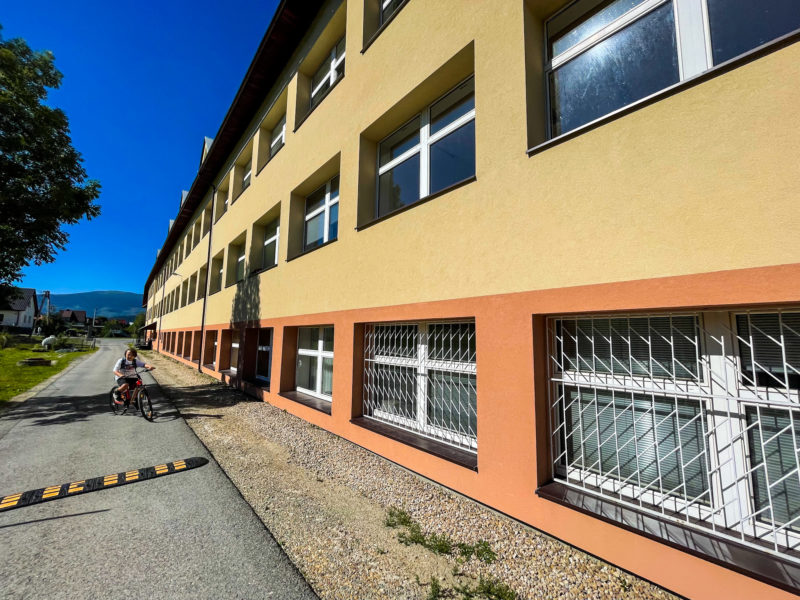
is a home that has never changed in appearance since I arrived in 1996, a home that has never been inhabited.
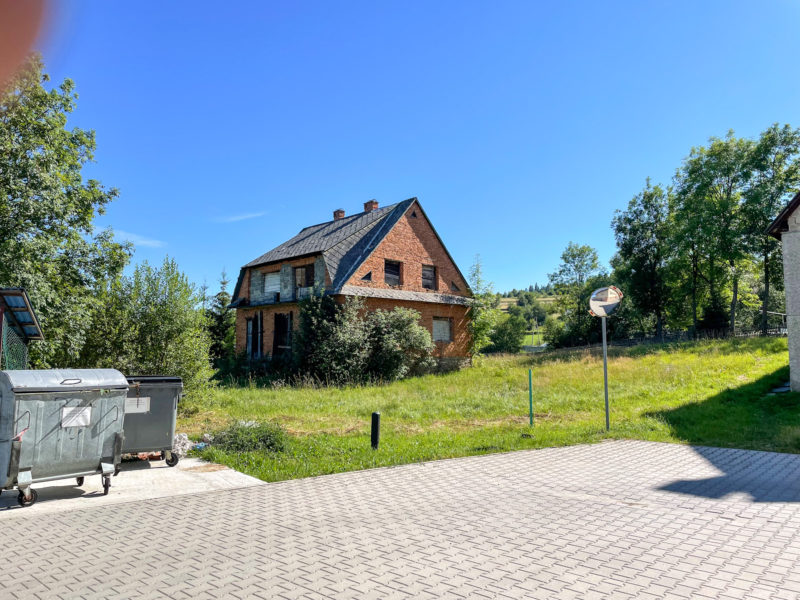
The owners moved to America and quite possibly have even passed away by now. Their children, fully integrated Americans with no desire to return to a small village in southern Poland, a village that one only drives to and never through, own property that they likely never see.
The ride itself — the before and after the discovery — was fantastic:
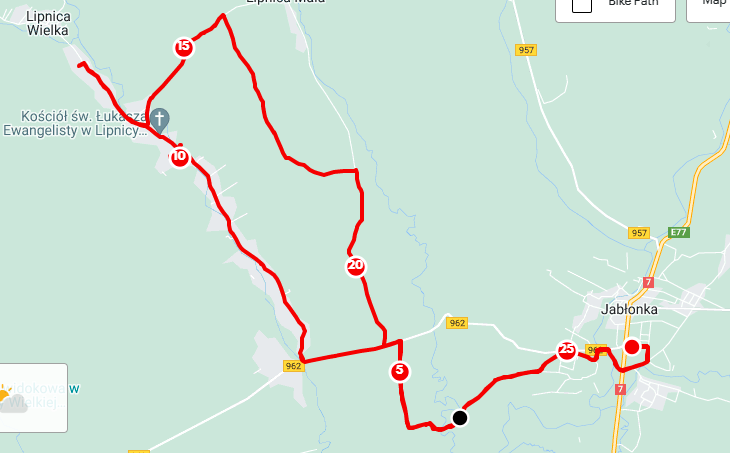
a 25 km ride that the Boy handled like a pro.
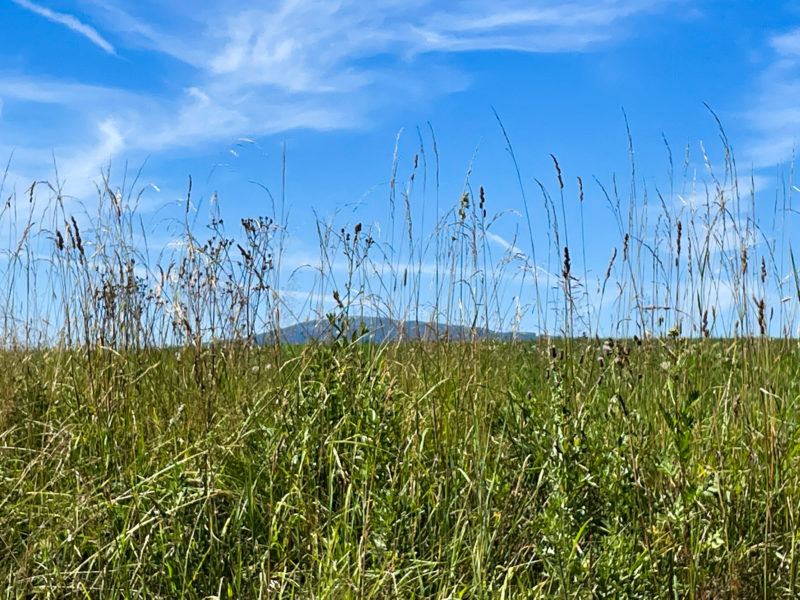
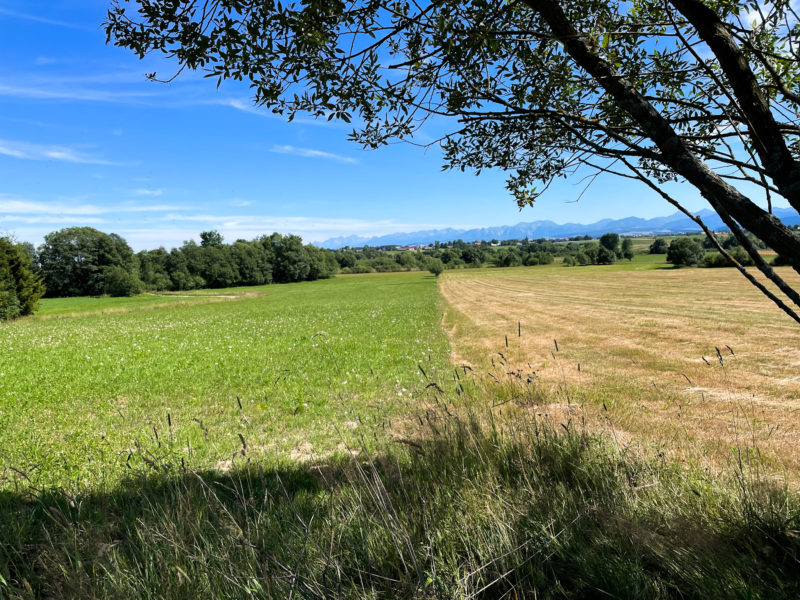
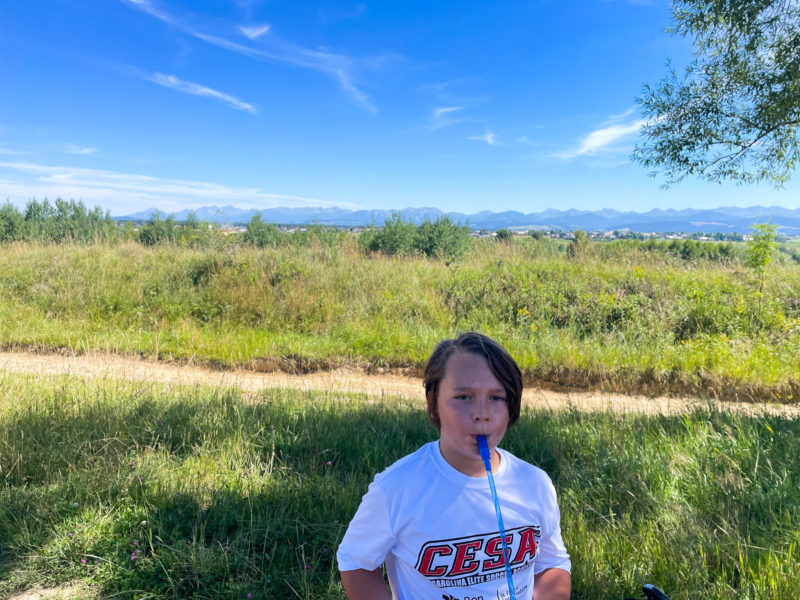
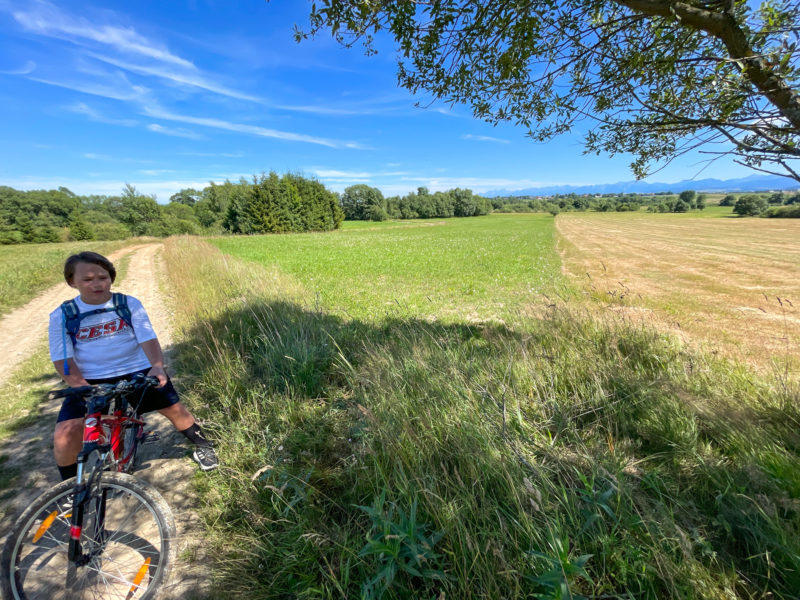
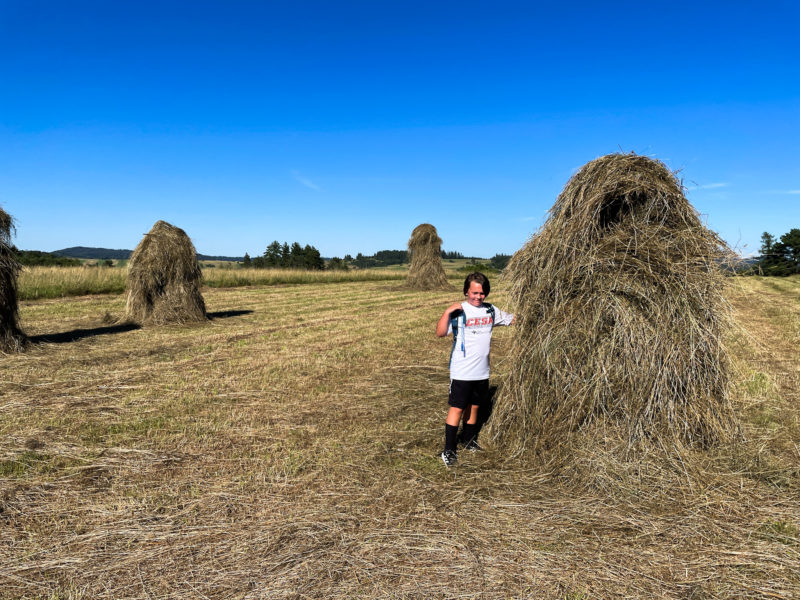
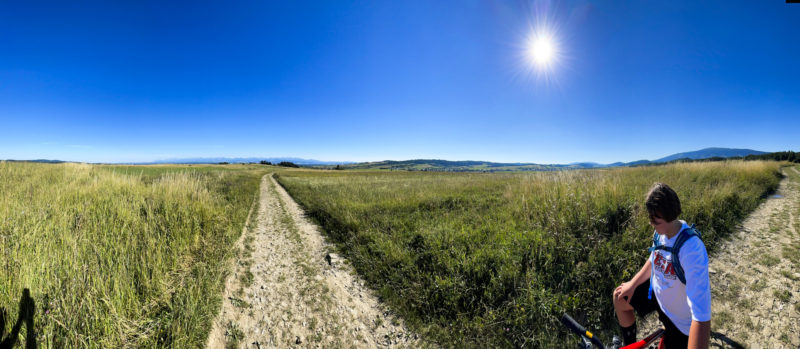
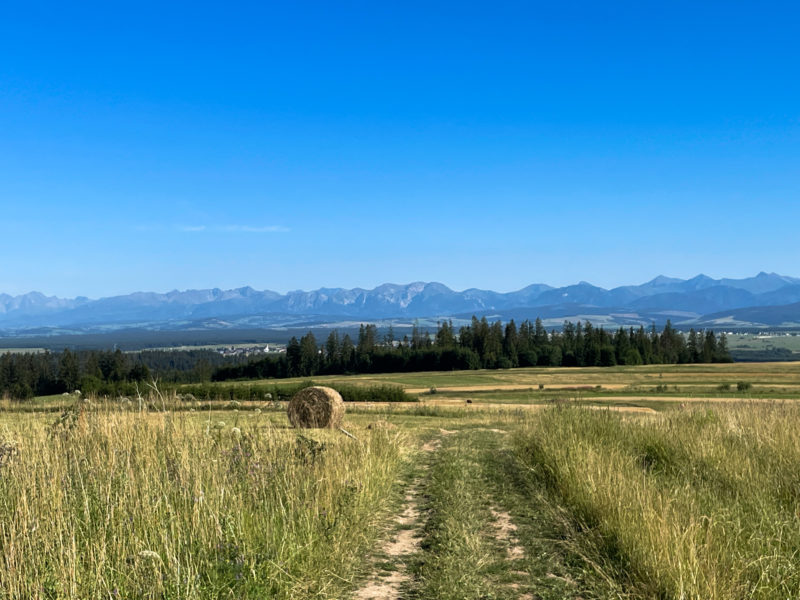
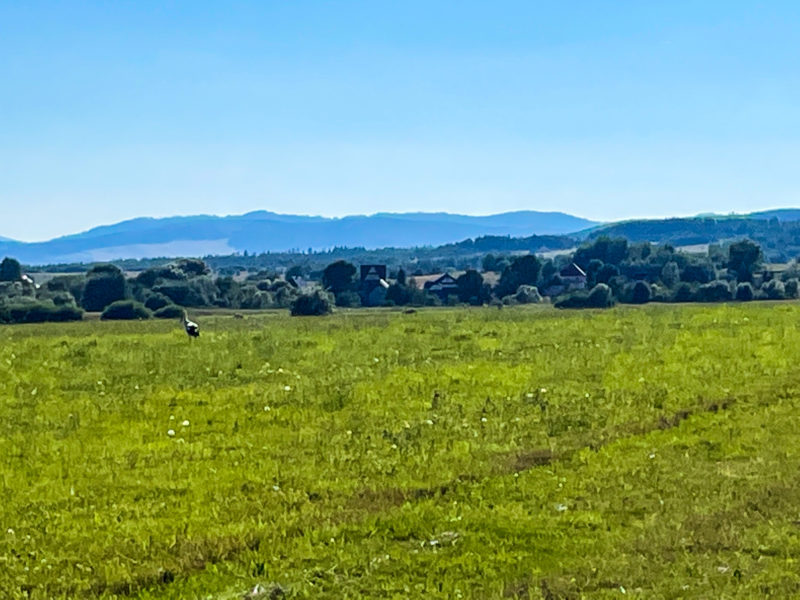
0 Comments